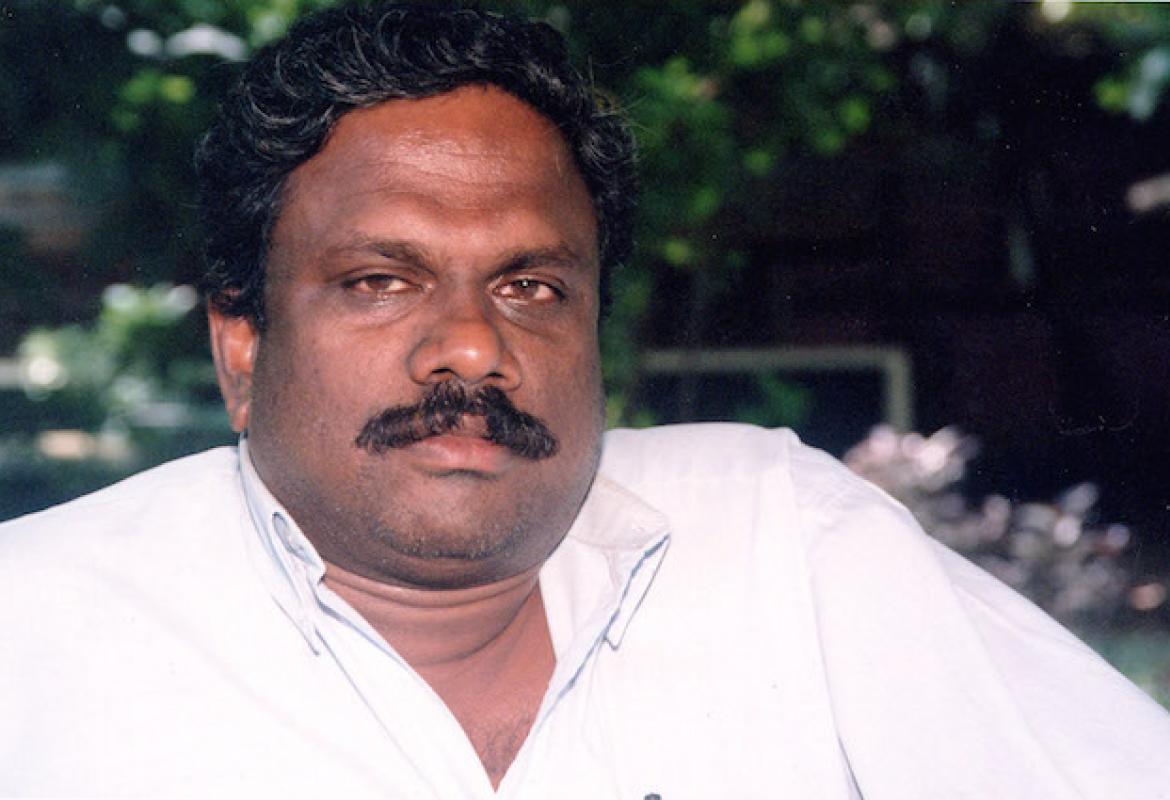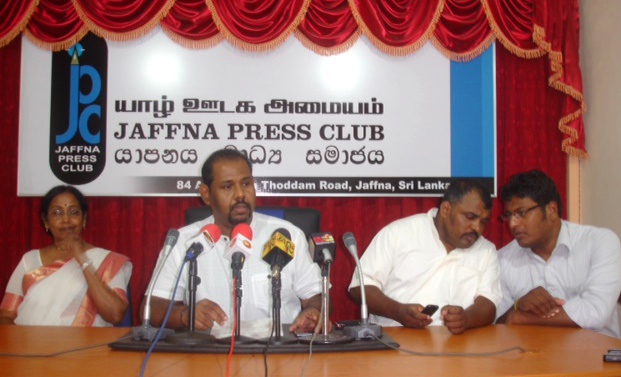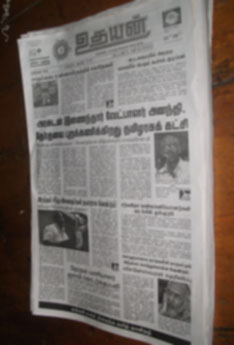The highly controversial Northern-Provincial Elections took place today, after a week that saw the attack of an electoral candidate’s residence, the death of a TNA campaigner and several other draconian measures .
Sources suggest that over 60% of eligible voters took part in all districts of the Northern Province. The district of Jaffna had the lowest turn-out of 60%.
The past week saw citizens of the North subject to heightening intimidation and misinformation.
Less than two days before the Northern Provincial Council election, one of the most vocal and outspoken candidates of the Tamil National Alliance’s electoral campaign Ananthi Sasitharan narrowly escaped an attack at her home.
Consequently, an election monitor, who rushed to the scene after receiving a call from Ananthi, was brutally attacked.
Full Coverage: SL army attack Ananthy Sasitharan's home (20 September 2013)
Fake prints of the Uthayan newspaper were distributed around the Northern Province, exhibited fictitious calls from the TNA that urged voters to boycott the elections. The forged paper went as far as alleging that TNA candidate, Ananthi Sasitharan, had pledged a new alliance to the ruling party, the UPFA.



.jpg)

